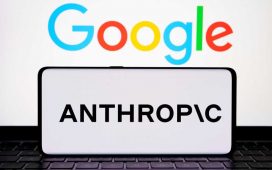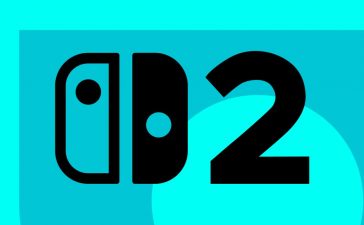Google will add its generative AI-based assistant, Duet AI, to most of its cloud services including data analytics, databases, and infrastructure and application management, the company said at its annual Google Cloud Next conference.
Duet AI, showcased in May at Google I/O, initially offered developer features such as code and chat assistance. Now, Google is expanding it to include code refactoring and translation, context-aware code generation, API management and application management.
Code refactoring is an essential step in modernizing applications, Google said, adding that enterprise users can now prompt Duet AI in natural language from within their development environment to generate new code in the desired programming language.
Using AI to help refactor and translate code is becoming more common. Last week, IBM too released a new feature of its Code Assistant that allows enterprises to refactor COBOL code and translate it into Java for its Z mainframe systems.
Duet AI is accessible across development environments such as the Google Cloud console, Cloud Workstations, and Cloud Shell Editor. In addition, Duet AI is also available through Cloud Code IDE extensions in third-party development environments, such as Visual Studio Code and JetBrains IDEs like CLion, GoLand, IntelliJ, PyCharm, Rider, and WebStorm.
Google hasn’t explicitly said which programming languages Duet AI supports, although it did offer the example of using it to convert C++ code to Go, and the third-party IDEs it works with support .NET, Java, Python, C, and C++, among other languages.
Duet AI can also be made code aware, Google said, adding that it had started to work with select enterprises to allow the generative AI-based assistant to be trained and customized with enterprise-specific knowledge from libraries and code bases in order to help the assistant generate context-aware suggestions.
“For example, you could ask Duet AI to generate code for a function that finds all products under $10 in a company’s product catalog, and it will generate a function based on the company’s classes and methods used to interact with the product catalog,” Google said.
Google is also adding Duet AI to its integration services, such as the Apigee API Management and Application Integration suites, in order to help developers design, create, and publish APIs using natural language prompts.
Duet AI for managing infrastructure and applications
In order to help enterprises manage applications and infrastructure better, Google is adding Duet AI to its cloud offerings.
“Duet AI can help you automate deployments, ensure applications are configured correctly, quickly understand and debug issues, and can create more secure and reliable applications,” the company said, adding that the assistant can help developers, site reliability engineers and operators monitor performance and troubleshoot issues by identifying correlations across applications.
It has added Duet AI to its Cloud Monitoring service, and enterprise users can use natural language prompts to generate PromQL (Prometheus Query Language) queries to analyze time-series metrics, such as CPU usage over time.
“Duet AI can also provide intuitive explanations of complex log entries in Logs Explorer for easier root-cause analysis, and provide suggestions for how to fix issues that are surfaced in Error Reporting,” Google said.
The new features are in preview and are expected to be made generally available later this year.
Duet AI in BigQuery and Looker
In addition, Google is adding Duet AI to its data warehousing platform, BigQuery, in order to provide contextual assistance for writing SQL and Python to access and analyze data.
The assistant can generate full functions, code blocks, auto-suggest code completions and explain code and SQL queries, the company said, adding that Duet AI in BigQuery focuses on helping data analysts understand data and its usage patterns.
Further, the assistant can generate vector embeddings in BigQuery to build semantic searches and recommendation queries, Google said.
The cloud services provider is also adding Duet AI to Looker, which is a business insights platform.
“With Duet AI in Looker we enable conversational data analysis, automatic generation of presentations, intelligent text summaries based on your reports, the use of natural language to create calculations and visualizations, as well as the ability to rapidly generate LookML models,” the company said, adding that it will add a new Duet AI experience to Looker to analyze data in a collaborative notebook experience later this year.
These features too are in preview; the company has not set a release date.
Duet AI in database and migration services
Google is also adding Duet AI to its database and migration services, starting with its distributed relational database service Google Cloud Spanner.
“With Duet AI in Cloud Spanner, you can generate code to structure, modify, or query your data using natural language,” the company said, adding that these features will be extended to AlloyDB and Cloud SQL as well.
In addition, Duet AI is being added to Google’s Database Migration Service (DMS) in order to automate the conversion of database code that could not be converted with traditional translation technologies, such as stored procedures, functions, triggers, packages and customer PL or SQL code.
Later this year, enterprises will be able to use Duet AI in DMS to migrate the last mile of Oracle to AlloyDB and Oracle to Cloud SQL-for-PostgreSQL, the company said.
AlloyDB AI to help build generative AI apps using data in PostgreSQL
Also, Google said that it was adding a suite of integrated capabilities, dubbed AlloyDB AI, to its AlloyDB for PostgreSQL database service in order to help developers build generative AI-based applications using real-time data.
AlloyDB AI, which is currently in preview, builds on the basic vector support available with standard PostgreSQL, the company said, adding that it can introduce a simple PostgreSQL function to generate embeddings on data.
“With a single line of SQL, you can access Google’s embeddings models, including both local models (available in technology preview in AlloyDB Omni) for low-latency, in-database embeddings generation, and richer remote models in Vertex AI,” Andi Gutmans, vice president of engineering at Google Cloud Databases said in a statement.
“These models can be used to automatically create embeddings via inferencing in generated columns and to generate embeddings on-the-fly in response to user inputs,” Gutmans added.
AlloyDB AI also enhances vector support queries using its ScaNN technology, the company said, adding that this allows support for more vector dimensions and saves storage space.
The new suite of capabilities also include integrations with LangChain and Vertex AI Extensions.
AlloyDB AI can be downloaded using AlloyDB Omni, which is currently in public preview.
In July, Google launched support for the popular pgvector extension in AlloyDB and Cloud SQL to support building generative AI applications.
Copyright © 2023 IDG Communications, Inc.












